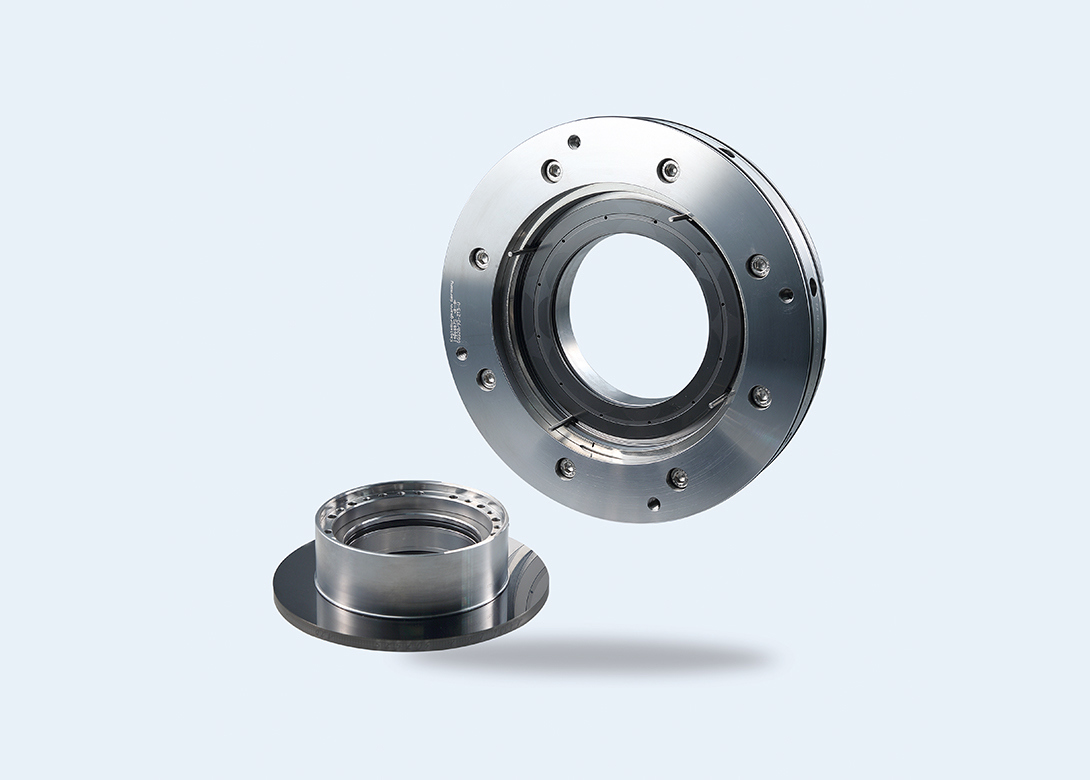
Norms and standards make technology safe, environmentally sound and efficient. The US standard API STD 692 is used around the world for compressor operation and recommends conducting vent studies to identify technical risks. The robust, patented CobaSeal from EagleBurgmann sets the standard for separation seals, offering outstanding cost-efficiency and maximum safety.
Today’s centrifugal compressors typically feature two stage, gas lubricated mechanical seals combined with a separation seal. In most industrial applications, these compressors are process critical components. This means high demands on availability, reliability and safety, making detailed specifications and in-depth expertise essential.
Although gas lubricated mechanical seals are the safest and most reliable seal technology for compressors, major seal failures have occurred in the past with serious consequences for people, the environment as associated technical systems. API STD 692 therefore expressly emphasises the need to conduct comprehensive vent studies to investigate the operating behaviour of the technical components up to the operating limits.
These vent studies involve technical examinations of worst case scenarios in order to indentify safety related weaknesses, evaluate risks and define appropriate measures. The measures may cover some or all components of a compressor such as the seal configuration, the separation seal design, the machine porting, or the seal supply sytem.
One dramatic scenario is the failure of the first and second seal of a gas lubricated mechanical seal. This increases the pressure on the secondary vent, which can result in damage to the separation seal, leading to an unexpectedly large quantity of process gas penetrating into the shaft bearing. As the process gas flows through, particles from the damaged primary and/or secondary seal can be carried into the bearing chamber.
Typical, non-coaxial separation seals consume large amounts of process gas even under normal operating conditions. In the described scenario, extreme quantities penetrate into the shaft bearing, significantly increasing the risk of a major incident. The engineers at EagleBurgmann have now put the patented separation seal CobaSeal to the test. This robust seal demonstrates mechanical integrity up to 70 bar. The CobaSeal therefore allows a safe com pressor shutdown even in emergencies.
Since its introduction in 2008, the coaxial, gas lubricated separation seal CobaSeal has proven itself around the globe in both first fit and retrofit applications. It consists of a rotating seat made of ductile material and a stationary, spring loaded seal face. The separation gas is routed through axial holes in the stationary seal ring into the middle of the sliding face. It is then divided in the sealing gap into two leakage flows which are routed to the inner and outer diameters of the seal face.
Extremely low leakage is an essential feature of the CobaSeal. Compared to separation seals such as labyrinths or seals with carbon rings, the values of the CobaSeal are down by as much as 95%. The patented CobaSeal is also used as a true backup seal for greater safety in combination with a gas lubricated single, double or tandem seal.

Having spent a decade in the fastener industry experiencing every facet – from steel mills, fastener manufacturers, wholesalers, distributors, as well as machinery builders and plating + coating companies, Claire has developed an in-depth knowledge of all things fasteners.
Alongside visiting numerous companies, exhibitions and conferences around the world, Claire has also interviewed high profile figures – focusing on key topics impacting the sector and making sure readers stay up to date with the latest developments within the industry.





